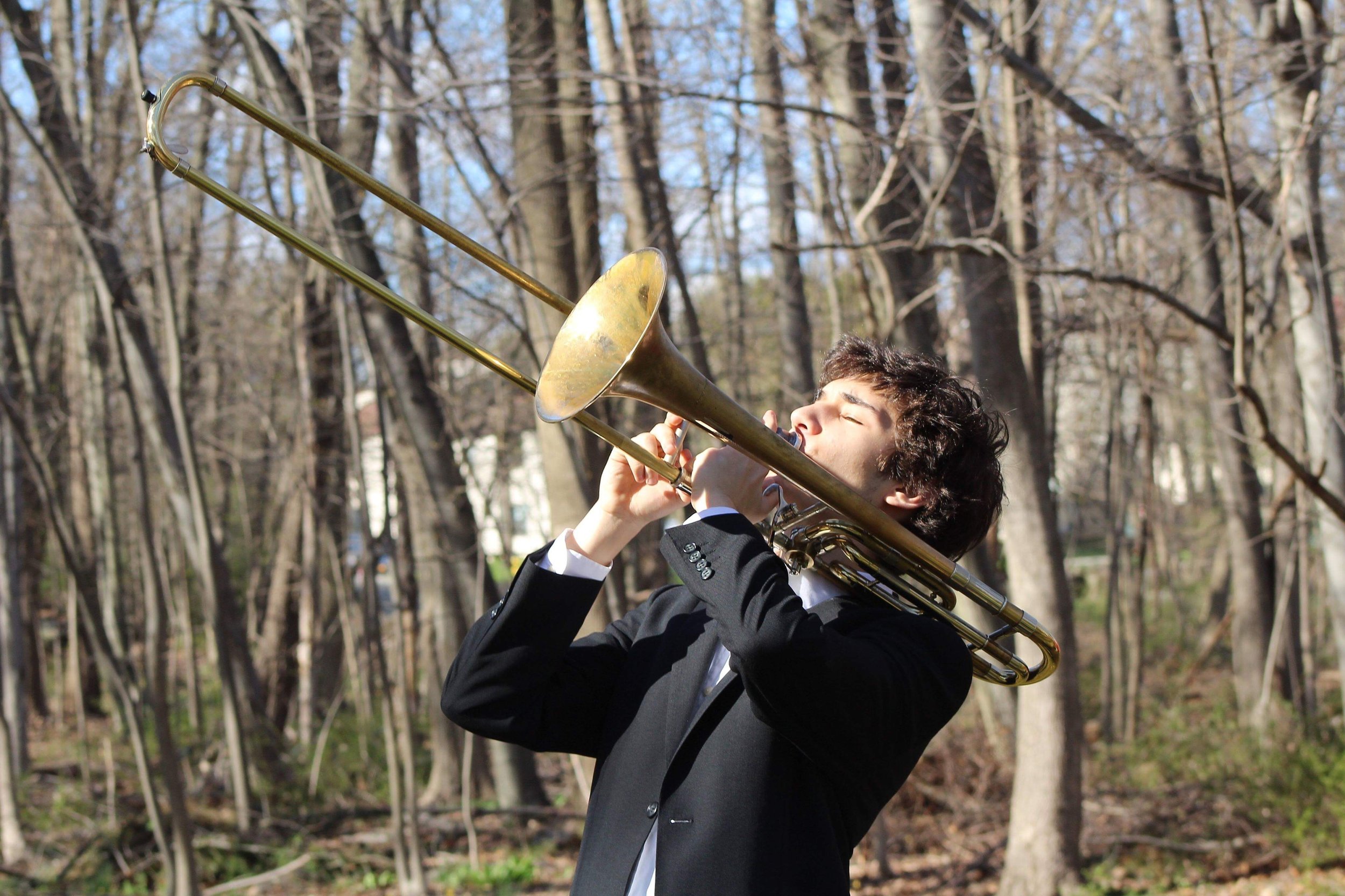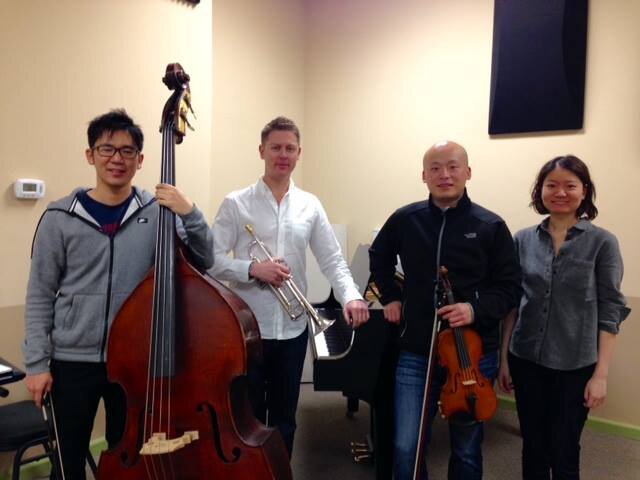How has studying at a conservatory shaped your musical life?
Studying at the SUNY Purchase Conservatory of Music was a really important step for me in my musical journey. The friends I met there were such terrific musicians and they inspired me to want to get better in all areas of my playing, especially the ones that I wasn't attending to very much up until that point! I no longer wanted to set limits on myself and I realized that with enough practice you can play pretty much anything you set your mind to.
How much do you practice, and when?
I practice every day but how much I practice varies from day to day. For instance, if I have a free day I can afford to have more practice sessions and explore some things I've been wanting to work on but hadn't found the time to do. But, if I am working or playing a concert that day I really focus more on the fundamentals of the instrument with the time I have so that I am ready to go when it's time to play. I usually practice in 25-minute chunks and depending on the day I do anywhere from 3 to 6 chunks.
“My philosophy for teaching is to try to help the student learn how to teach themselves.”
What are your habits when it comes to preparing for an important concert?
For an important concert or audition, I try to split up my focus into two categories, the physical and the mental. The physical aspect is practicing the piece and working out any issues I have with it. This usually involves listening to lots of recordings as references, working with a metronome, coming up with ideas for phrasing, and brushing up the piece until I am satisfied with it. Then comes the mental aspect, which is making sure that when it comes time to play the piece "for real" I am focused and in the moment. This is at least half the battle in my opinion because if you haven't practiced centering yourself and learning how to control your nerves you are not going to be able to play at your best when you need it the most.
What makes a player of your instrument truly exceptional?
I think a trombonist (or any musician for that matter) who is exceptional is someone who is excellent at every area of playing their instrument. So whether the music is fast, slow, loud, soft, high, low, lyrical, virtuosic, textural, or anything else, a great trombonist should be able to play their part fantastically. There are plenty of players that are great at a few things and only so-so at others, only the very best have taken the time to iron out every aspect of their playing.
What are some quick, basic techniques you use to get a perfect tone?
To get an amazing tone on the trombone I think first you need to listen to as many trombonists as you can find and try and put their sounds into words. Maybe a trombonist with a sound you really like you might describe as pure, velvety, and sweet whereas one you dislike you may describe as shrill, nasal, and fuzzy. Now once you have a basic concept of your sound preferences I would play along to recordings of the trombonists whose sound you enjoy and try your best to match their sound, so a passerby listening wouldn't be able to tell the two of you apart.
Describe the first lesson with a beginner with you. What do you go over?
When I am giving the first lesson to any beginner I always ask what they know about the trombone already and what they would like to learn. Some students have a very clear idea about some things already, like how to put the instrument together and how to make a sound while others haven't even played a note on a trombone before. Then once I have a basic understanding of their current level I usually will engage in some call and response exercises with them and describe the goal of each exercise. If the student already has some music they would like to work on we will start going over that but if not I will usually assign a short piece from The Arban Complete Method for Trombone and Euphonium, a great place to start for beginners.
Which books are available to beginner players?
If I had to recommend two books for trombonists they would be The Arban Complete Method for Trombone and Euphonium and Marco Bordogni's Melodius Etudes. These books will last you the rest of your career!
What are your philosophies for life, teaching, or performance?
My philosophy for teaching is to try to help the student learn how to teach themselves. I only see my students once a week for an hour or so, and if the time they spend practicing by themselves isn't attentive and thought out they will undoubtedly not improve much from week to week. I explain to students that a lesson should act more like a weekly check-up to make sure things are going well and if they aren't we'll try and figure out how to fix it together. My philosophy for performance is to be present in the music you and others around you are making. The moment you start daydreaming or fretting about the solo you have coming up you will invariably not end up playing your best because your mind is no longer focused on the task at hand but somewhere else entirely. As for my thoughts on life, I think that you need to find something you like and stick to it, regardless of what other people say, otherwise you end up spending your days wondering what could've been instead of being happy about what is.
Which musician or teacher has been inspirational to you? and why?
I think that my very first private teacher John Lieto was a terrific influence on me. Not only did he help me out tremendously when it came to basic technique and facility on the trombone, but he was an extremely warm and encouraging teacher as well. Lessons were always fun and enjoyable with him and the appreciation he had for great trombone players rubbed off on me from a very young age. As for inspirational musicians, there are too many to count! If I had to name two that are such masters of their craft that it keeps me inspired whenever I hear them I would choose the trombonist Peter Steiner and trumpeter Elmer Churampi.
What are you listening to? (thank you for your time)
Right now I have been listening to some great recordings of Dennis Brain and Matthias Höfs that will knock your socks off. Also, I have been really into the Gnarls Barkley Album St. Elsewhere as well.












